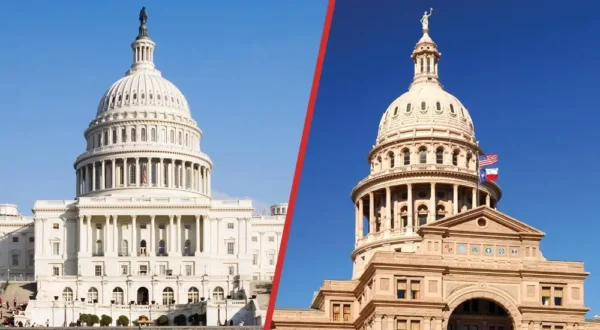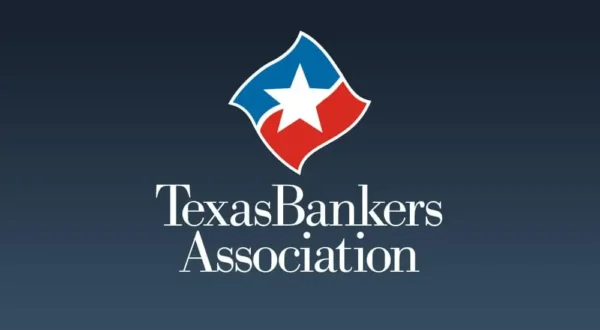TBA's Priority Legislative Issues
Explore the core advocacy areas where TBA champions the interests of member banks, engaging with state and federal legislators and agencies to drive meaningful change in the banking industry.
All Issues
Trigger Leads
Credit bureaus can sell the personal contact information of consumers who are shopping for a mortgage, which can generate hundreds of unwanted solicitations from other lenders and diminish customer trust in their financial institutions.
-
Support the Homebuyers Privacy Protection Act, which would prohibit credit reporting agencies from sharing mortgage applicants’ information unless there is a preexisting banking relationship.
Tax Policy
Banks of all sizes, including Minority Depository Institutions (MDIs) and Community Development Financial Institutions (CDFIs), utilize tax credits to stimulate economic growth and drive private investment in rural, urban and tribal communities that are economically distressed.
-
Support a CDFI investment tax credit.
-
Co-sponsor the Main Street Tax Certainty Act (S.213 and H.R. 703), the New Markets Tax Credit Extension Act (S. 479 and H.R. 1103) and the Affordable Housing Credit Improvement Act.
The expiration of many important tax provisions at the end of 2025 will necessitate major tax legislation this year. ABA’s pillars for any potential tax reform package:
-
Maintaining a competitive corporate tax system
-
Ensuring minimum tax regimes are consistent, cohesive and workable
-
Extending the Section 199A pass-through deduction
-
Modifying the credit union tax exemption to align its tax treatment with its activities
Protect Americans’ Payment Cards
The Credit Card Competition Act would impose government mandates on the credit card market, reducing the security of credit card transactions, limiting community bank card offerings and eliminating important consumer benefits like credit card rewards programs.
-
Oppose the so-called Credit Card Competition Act (CCCA) and prevent a massive wealth transfer from small community financial institutions and their customers to large retailers.
Overdraft Protection
Preserving overdraft protection — a form of short-term liquidity — is paramount for banks of all sizes. The CFPB’s final rule would create a $5 price cap for overdraft fees and thereby restrict, if not eliminate, millions of consumers’ access to this valuable service.
-
Co-sponsor S.J. Res. 18 and H.J. Res 59, a congressional resolution of disapproval that would
nullify the CFPB’s overdraft rule.
Federal Regulation of Stablecoin Issuers
Stablecoin is a form of digital asset that seeks to maintain a stable value relative to a reference asset. Stablecoins mimic commercial bank money with potential use as a means of payment and as a deposit substitute, which could restrict credit availability.
-
Ensure payment stablecoins do not disintermediate the banking industry with legislation that prohibits interest on payment stablecoins, limits master account access for nonbank payment stablecoin issuers, ensures bank deposits are a viable option for payment stablecoin reserves, and enforces a separation of commerce and payment stablecoin issuance.
-
Legislation that establishes a stablecoin regulatory framework should consistently apply robust rules, supervision and enforcement to all payment stablecoin issuers in order to limit the risk of charter arbitrage and ensure financial stability and consumer protection.
Credit Union Oversight
Credit unions receive government subsidies to provide basic consumer banking products to underserved groups and communities, but some are straying from their original mission. This $2.3 trillion industry has no community benefit reporting requirements and receives minimal congressional oversight.
-
Convene an oversight hearing and ensure that the credit union industry’s tax treatment aligns with its activities.
CFPB Small Business Loan Application Data Collection Rule (Section 1071)
The CFPB’s final rule, which would require lenders to collect and report 81 new data fields about lending to women-owned, minority-owned and small businesses, would increase the cost of small-business lending and could reduce access to credit.
-
Co-sponsor the Small LENDER Act (H.R. 941), which would exempt lenders originating fewer than 500 small-business loans in each of the preceding two calendar years and limit the rule’s application to small businesses with gross annual revenues of under $1 million.
-
Support the Bank Loan Privacy Act, which would help protect small businesses’ privacy by requiring the CFPB to use the notice and comment rulemaking process to determine the data it will release to the public.
-
Co-sponsor S. 557 and H.R. 976, the 1071 Repeal to Protect Small Business Lending Act.
Cannabis Banking
Thirty-nine states have legalized cannabis for medical or recreational purposes, yet federal law still exposes banks to potential civil and criminal penalties, as well as regulatory sanctions, for serving cannabis businesses. The SAFER/SAFE Banking Act is common sense bipartisan legislation that would enable banks to serve state-licensed cannabis businesses, their employees and service providers in states where cannabis is legal.
-
Support the SAFER/SAFE Banking Act, which would get state-sanctioned cannabis cash off the streets and into regulated financial institutions, making our communities safer and the cannabis industry more transparent to regulators, tax authorities and law enforcement.
Access to Credit for our Rural Economy
ACRE is bipartisan, bicameral legislation that would lower interest rates for farmers, ranchers and rural homeowners on loans secured by farm real estate and aquaculture facilities, and for home mortgages less than $750,000 in communities of no more than 2,500 people.
-
Co-sponsor ACRE (S. 838 and H.R. 1822) and help deliver savings to farmers and ranchers in more than 17,000 rural communities across the United States.
HB 219 by Noble
Relating to the release of a deed of trust or other contract lien securing a home loan after payoff by mortgagor.
SB 895 by Johnson
Relating to the regulation of money service business; creating a criminal offense; creating administrative penalties; authorizing the imposition of a fee.
HB 1666 by Capriglione
Relating to the commingling of funds by digital asset service providers; providing an administrative penalty.
HB 4635 by Guillen
Relating to organized crime, racketeering activities, and collection of unlawful debts, providing a civil penalty; creating criminal offenses.
HB 3574 by Lambert
Relating to the regulations of state banks
SB 768 by Parker
Relating to the process for notifying the attorney general of a breach of security of computerized data by persons doing business in the state.
HB 4 by Capriglione
Relating to the collection, use, processing, and treatment of consumers’ personal data by certain business entities; imposing a civil penalty.
SB 761 by Hughes
Relating to photo identification for certain debit or credit card transactions.
HB 2837 by Schaefer
Relating to prohibiting a person or entity from surveilling, reporting, or tracking the purchase of firearms, ammunition, and accessories through the use of certain merchant category codes; imposing a civil penalty.




